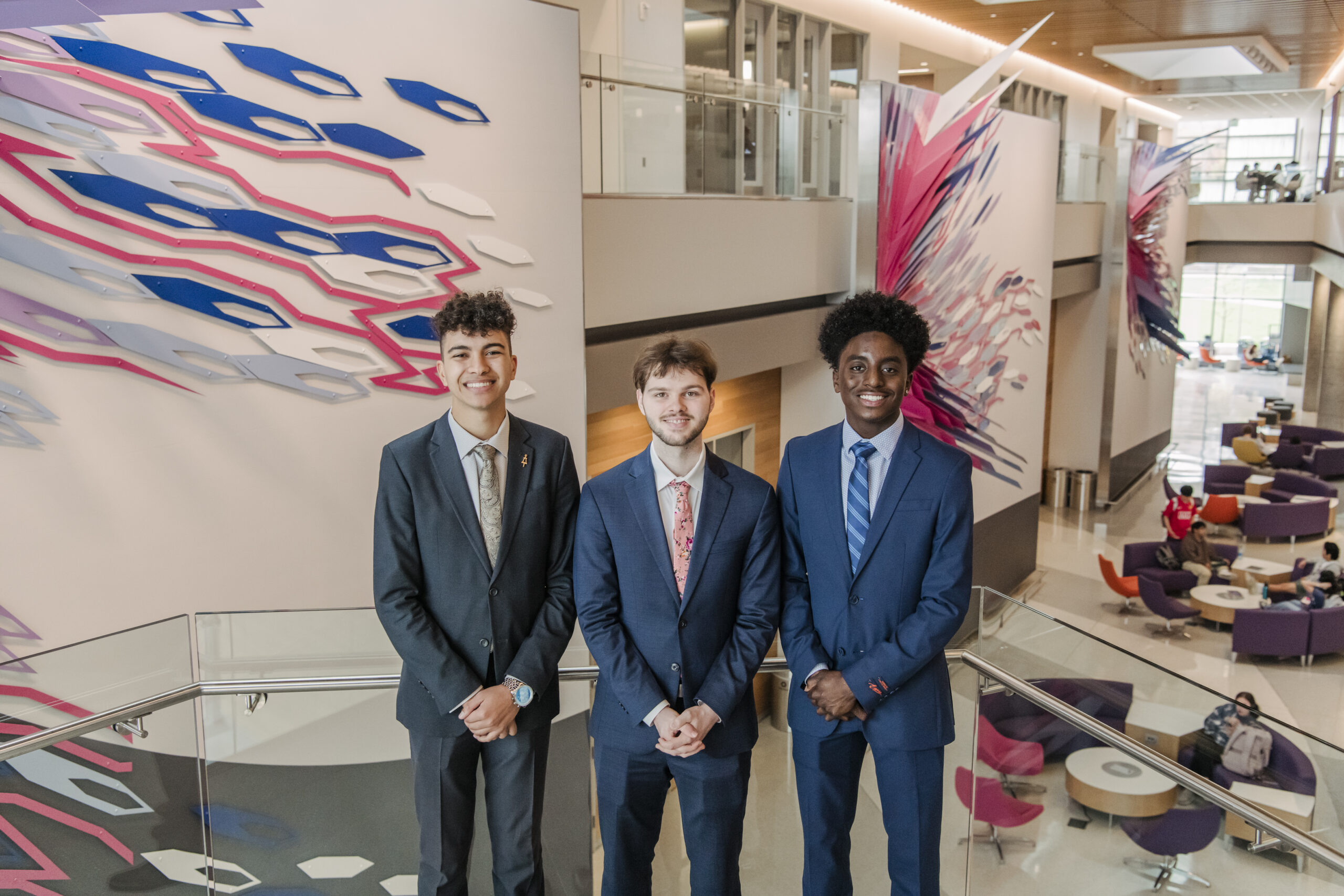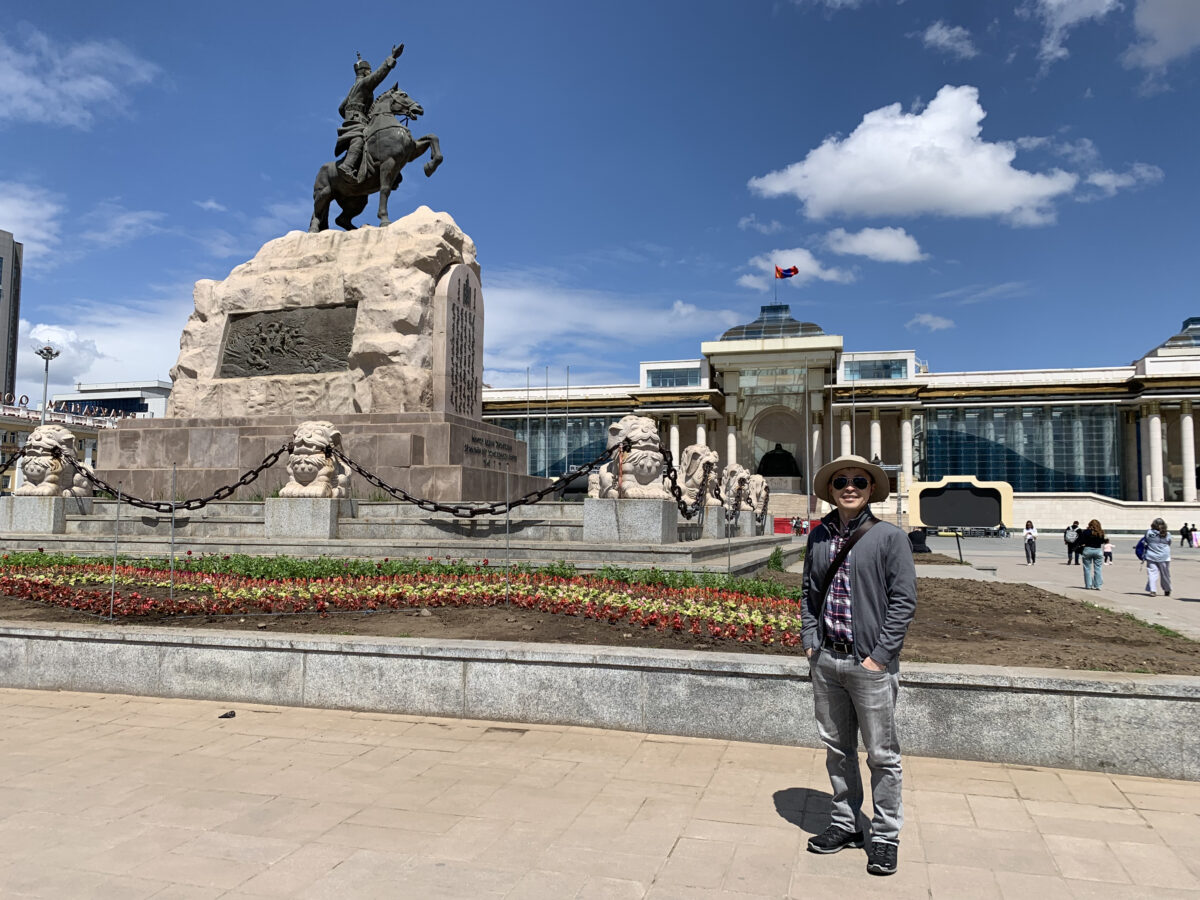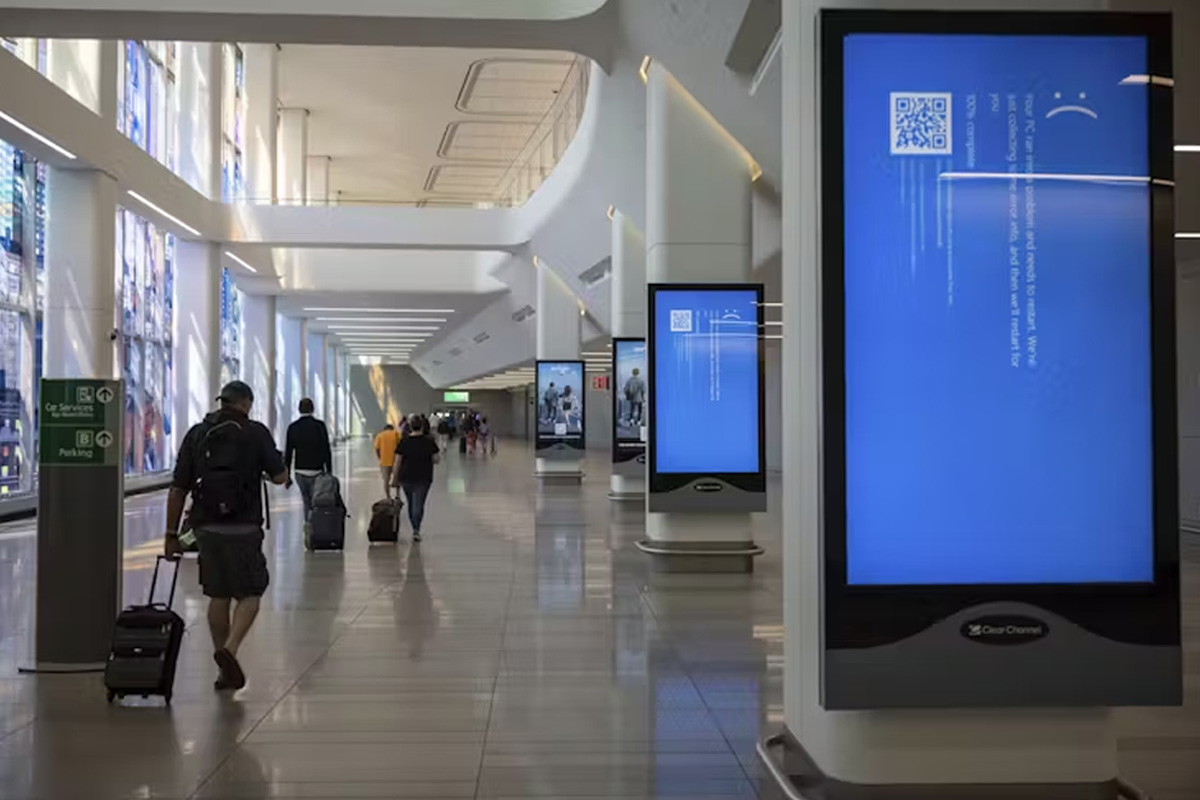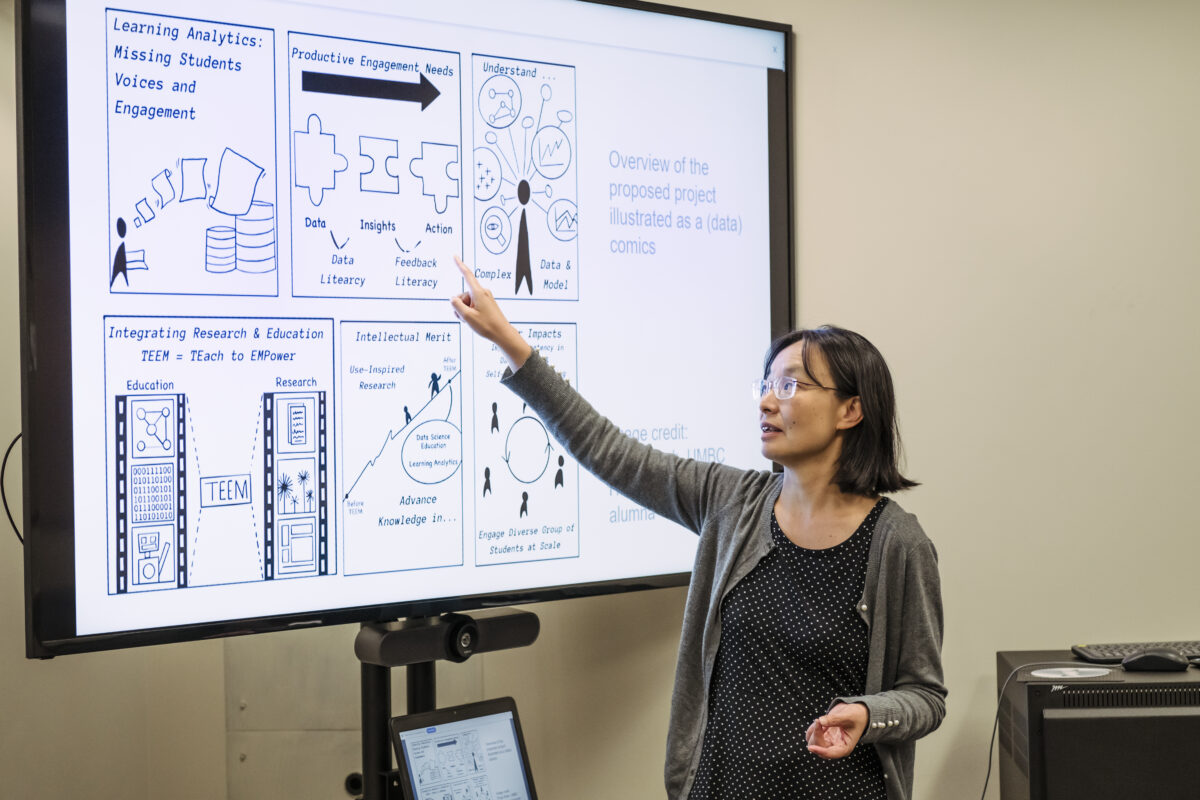For the fifth consecutive year, multiple UMBC students have been awarded a Barry Goldwater Scholarship. Gabriel Otubu ’25, biochemistry, Nathaniel Glover ’25, chemical engineering, and Samuel Barnett ’25, biochemistry, were recently named among the 2024 Goldwater Scholars recipients, joining UMBC’s growing list of students to receive this prestigious research scholarship. Since 2005, 31 UMBC students have been awarded a Goldwater Scholarship.
The goal of the Barry Goldwater Scholarship and Excellence in Education Foundation includes ensuring that the “U.S. is producing the number of highly-qualified professionals the nation needs” in the natural sciences, mathematics, and engineering. Otubu, Barnett, and Glover are among the 438 recipients of this year’s scholarship, the largest number of scholars ever supported in a single year in the program’s history.
“UMBC’s continued success with the recent Goldwater recipients is a direct result of the strong faculty mentoring that our students receive,” says April Householder ’95, visual and performing arts, UMBC’s director of undergraduate research and prestigious scholarships. “This is also a reflection of the incredible support programs and staff that UMBC makes available to students, helping them go the extra mile.”
Supported by multiple scholars programs
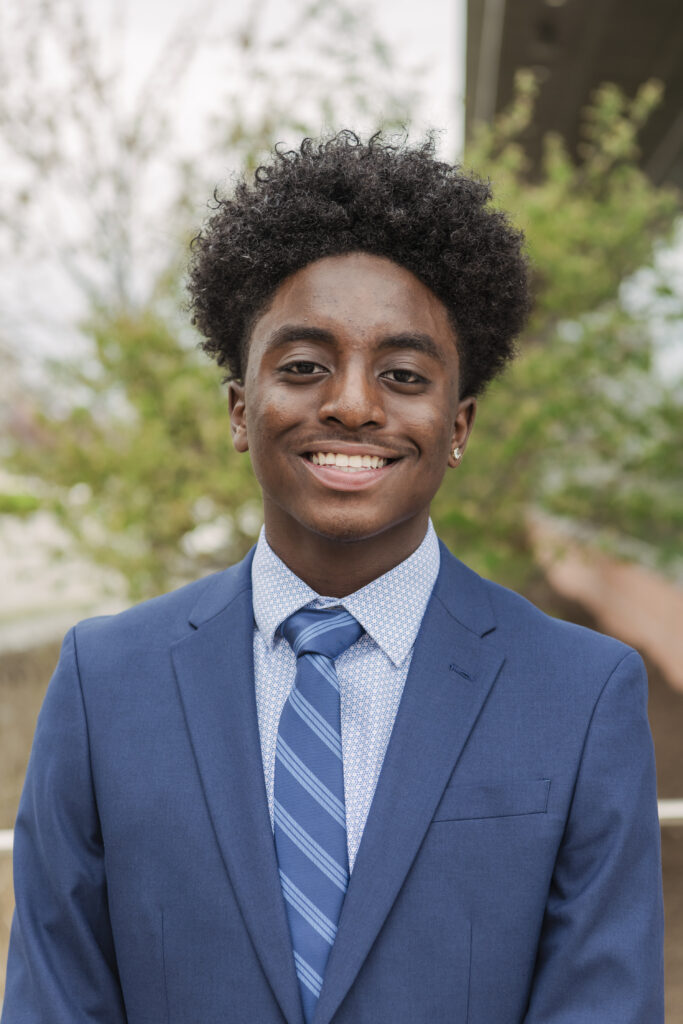
As an undergraduate research fellow in biology professor Rachel Brewster’s lab, Gabriel Otubu is investigating the role of the Ndrg1b gene in neurulation—the process of forming a neural tube that takes a hollow shape that differentiates into the brain and spinal cord—and how it affects other genes. This research, Otubu says, is aiming to understand the genetic risk factors associated with specific congenital disorders, such as spina bifida, with a goal of finding treatment options for these disorders.
Otubu, a Meyerhoff Scholar who plans on pursuing an M.D./Ph.D., shares that with Brewster’s guidance, “I learned that the M.D./Ph.D [route] was possible for me, as well as the possibility of being able to have a commitment to helping people in the clinic and also doing research to support that.” He is also an Undergraduate Research Training Initiative for Student Enhancement (U-RISE) Scholar, an experience he says inspired him to pursue a career in research because he was able to be supported by like-minded people.
“One of the most important things about getting the Goldwater Scholarship is the motivation it gives me to be the best researcher I can be,” says Otubu. “It’s great to get that recognition that I’m really committed to research and using my platform to help other people from diverse backgrounds become interested in research.”
Nathaniel Glover, a fellow Meyerhoff Scholar, says that receiving the Goldwater scholarship will “open up a lot of opportunities for me to be a competitive grad school applicant.” His Goldwater proposal included the research he worked on to develop a dual-phase steel that can combat hydrogen embrittlement, the mechanical damage of metal due to the penetration of hydrogen, which causes a reduction in ductility.
Glover worked in the lab of C. Cem Taşan, associate professor of metallurgy at the Massachusetts Institute of Technology (MIT), as an MIT Summer Research Program participant in 2023.
The program, he shares, “was very helpful in teaching me how to write about my research, which was extremely beneficial in the Goldwater application process. Taşan and my research mentor, Dr. Kyung-Shik Kim, were instrumental in developing my research in this project, introducing me to the science behind it, and working with me throughout my work in the project. I learned how to write and portray my research in a way that’s well communicated, interesting, and educational.”
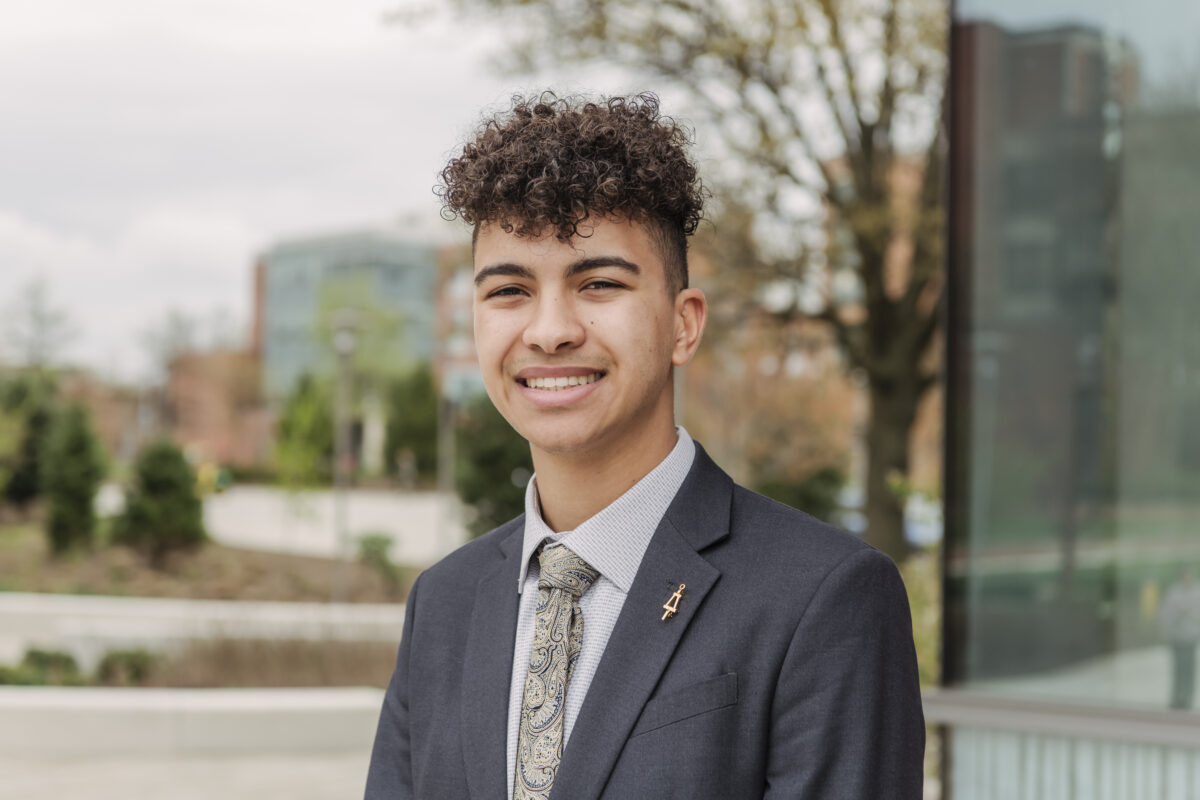
Developing into a researcher
Samuel Barnett’s journey in becoming a Goldwater Scholar began during his time as a student at Howard Community College (HCC). Barnett, who transferred to UMBC last fall, was able to take advantage of the updated eligibility requirements for prospective scholarship applicants. The 2024 application cycle amended its eligibility criteria allowing transfer students to be nominated by the school they are currently enrolled in or by the school they matriculated from. With the help of the HCC research department and Householder, Barnett was nominated by HCC to receive the scholarship.
With this recent change, Householder shares that “cross-institutional collaborations like these are opening new pathways between UMBC and its transfer institutions [while] providing an additional layer of support to transfer students who come to UMBC with a strong research background, like Sam.”
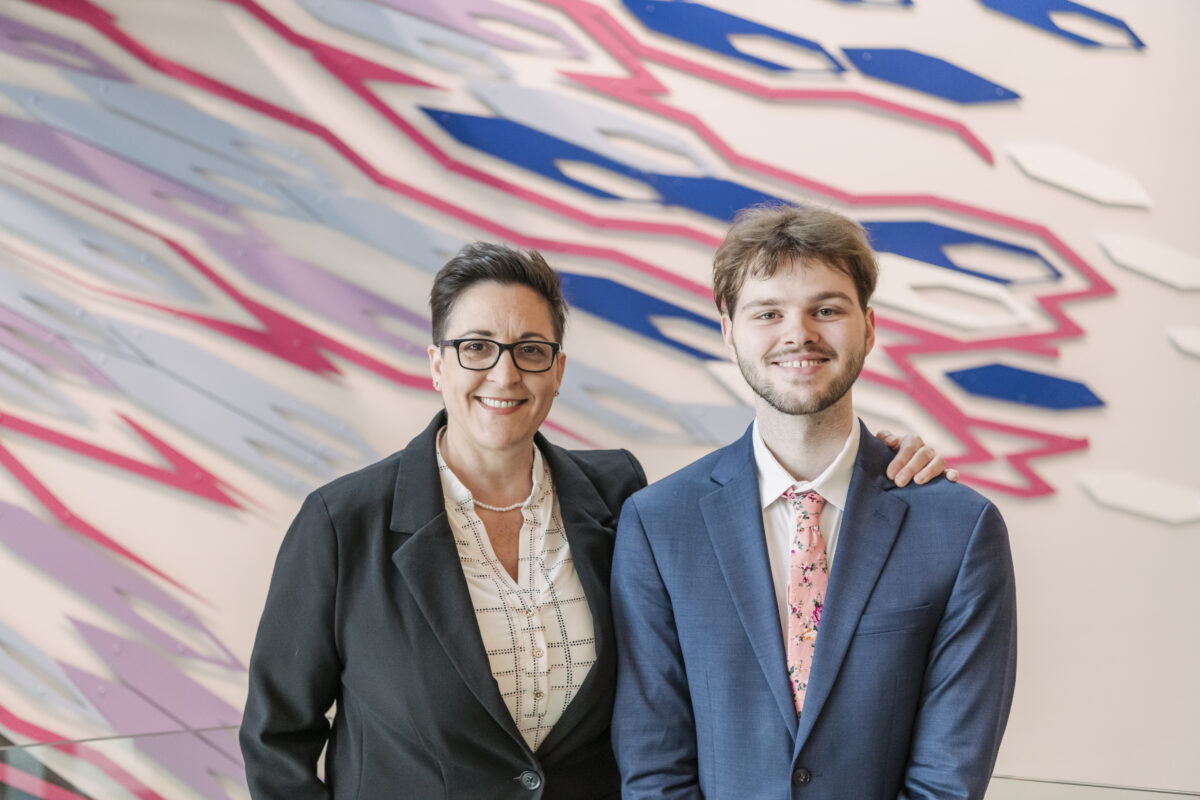
Barnett worked with his mentor Joseph Sparenberg, professor of chemistry at HCC, on a project that uses a species of yeast, Saccharomyces cerevisiae, to model a type of cancer in humans that occurs from mutations in the KRAS gene. The model, which is still in the proof of concept stage, visualizes a live cell to see pathways and tumor growth in real-time.
Barnett nearly called it quits with his academic journey upon enrolling at HCC, saying that he “had no motivation to continue on with my education.” After participating in HCC’s research program, Barnett found a renewed sense of purpose and took his research interests to the next level.
Before transferring to UMBC, Barnett took part in the BUILD a Bridge to STEM internship program, a component of STEM BUILD at UMBC, which he says was vital for “my development in this Goldwater process.” During the internship, Barnett worked with Maria Cambraia Guimaro, assistant director of research and international affairs in the College of Natural and Mathematical Sciences, who he says played a significant role in his research journey at UMBC.
“It was extremely empowering to know that as a community college student, I could experience research there and also win a prestigious award for it,” adds Barnett. “I now have a collection of wonderful mentors throughout my research journey that’s helped to shape who I am today.”
Tags: Biochemistry, CBEE, Chemical engineering, CNMS, COEIT, meyerhoff, Research, Spring 2024, STEMBUILD, Undergraduate Research

